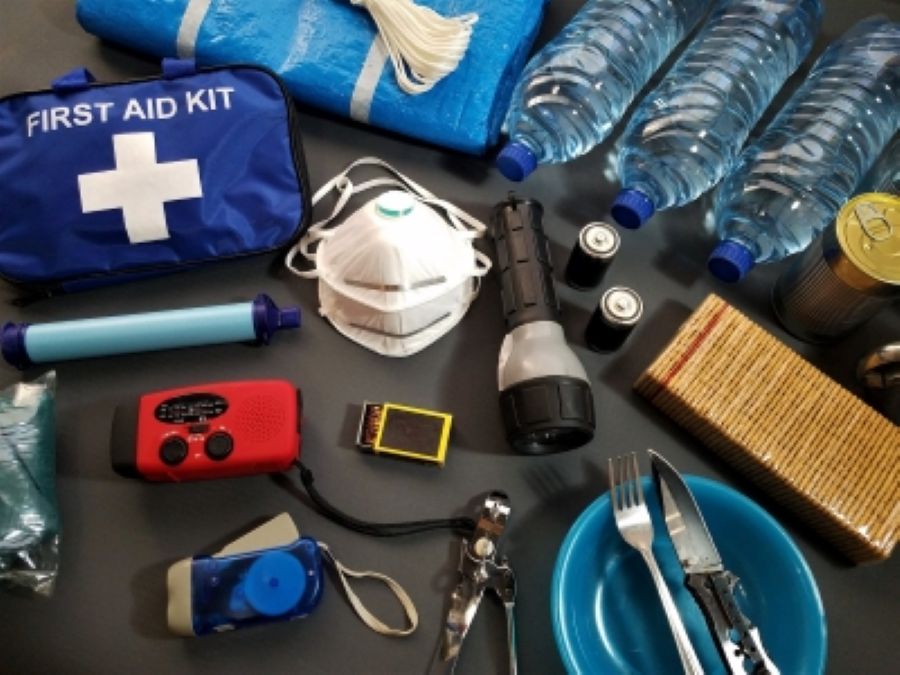When disaster strikes, it’s crucial to have a plan in place for bugging out. Whether you’re facing a natural disaster, civil unrest, or any other emergency situation, knowing what to do and what not to do can make all the difference in keeping yourself and your loved ones safe. In this article, we’ll be exploring eight critical things you should never do when bugging out. From avoiding crowded areas to packing the right supplies, we’ll cover everything you need to know to stay prepared and stay alive. So whether you’re a seasoned prepper or just starting to think about your emergency preparedness, read on for essential tips on how to bug out safely and effectively.

Understanding the Risks
Before we dive into the critical mistakes you should avoid when bugging out, it’s essential to understand the risks that you may face in an emergency situation. The first step in creating an effective bug-out plan is to identify the potential threats in your area. This could include natural disasters such as hurricanes, earthquakes, and wildfires, as well as human-made disasters such as civil unrest, terrorist attacks, and pandemics.
Once you’ve identified the potential risks, it’s crucial to assess your personal situation. Consider the number of people you need to evacuate, the distance you may need to travel, and any special considerations such as medical needs, pets, or elderly family members. By understanding the risks and assessing your personal situation, you can create a bug-out plan that is tailored to your specific needs.
Common Mistakes to Avoid When Bugging Out
Now that you understand the risks and have assessed your personal situation, let’s take a look at some of the most common mistakes people make when bugging out. By avoiding these critical errors, you can increase your chances of staying safe and surviving an emergency situation.
Never Relying on One Bug-Out Plan
One of the most common mistakes people make when bugging out is relying on a single plan. While it’s essential to have a plan in place, it’s equally important to have multiple backup plans in case your primary plan falls through. This could include alternative routes, evacuation sites, or means of transportation.
It’s also important to consider the possibility of your bug-out location being compromised. If your primary location is no longer safe, do you have a secondary location in place? By having multiple plans and backup options, you can increase your chances of bugging out successfully.
Not Preparing for Basic Needs
Another critical mistake people make when bugging out is not preparing for their basic needs. In an emergency situation, access to food, water, and shelter may be limited or non-existent. It’s essential to have a plan in place for these basic needs, including adequate food and water supplies, shelter, and first aid kits.
When packing your bug-out bag, make sure to include enough supplies to last at least 72 hours. This should include non-perishable food items such as canned goods, water, and hygiene supplies. It’s also important to have a means of purifying water, such as a water filter or purification tablets.
Not Having a Proper Bug-Out Bag
Your bug-out bag is your lifeline in an emergency situation, so it’s essential to have a properly stocked and organized bag. One of the most common mistakes people make is packing too much or not enough. Your bug-out bag should be lightweight and easy to carry, but also contain all the essential items you need to survive.
When packing your bug-out bag, consider the climate and terrain you may encounter. This could include warm clothing, rain gear, and sturdy footwear. It’s also important to include a means of self-defense, such as a firearm or pepper spray.
Not Having a Communication Plan
Communication is essential in an emergency situation, so it’s important to have a plan in place for staying in touch with your family and emergency services. This could include having a designated meeting place, a communication device such as a two-way radio or cell phone, and a backup power source such as a portable charger or solar panel.
It’s also important to have a plan for staying informed about the situation as it unfolds. This could include monitoring the news, social media, or emergency broadcasts.
Not Practicing Your Plan
One of the most critical mistakes people make when bugging out is not practicing their plan. When disaster strikes, it’s not the time to figure out what to do. By practicing your bug-out plan, you can identify any potential issues and make adjustments as needed.
Practice your bug-out plan with your family, including any children or elderly family members. This could include running drills, packing your bug-out bags, and identifying evacuation routes.
Avoiding Conflict and Violence
In an emergency situation, it’s important to avoid conflict and violence whenever possible. This could include avoiding crowded areas or areas with a high risk of violence. It’s also essential to have a means of self-defense and to know how to use it.
If you find yourself in a violent situation, it’s important to remain calm and avoid escalating the situation. Your priority should be to keep yourself and your loved ones safe, so always be aware of your surroundings and have an escape plan in place.
Staying Safe and Prepared When Bugging Out
When disaster strikes, having a plan in place for bugging out can make all the difference in keeping yourself and your loved ones safe. By understanding the risks, avoiding common mistakes, and practicing your plan, you can increase your chances of surviving an emergency situation.
Remember to never rely on a single plan, prepare for your basic needs, have a properly stocked bug-out bag, have a communication plan, practice your plan, and avoid conflict and violence whenever possible. With these essential tips, you can bug out safely and effectively.

